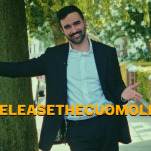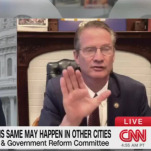Airbnb's headquarters was occupied by activists today
The campaign over a San Francisco ballot measure that would impose tougher limits on Airbnb rentals has inspired quite the political battle in the tech capital. It’s a battle that resonates nationally as it pits public policy makers against a tech giant that has single-handedly changed urban housing markets across America — especially in housing-strapped San Francisco. .
Airbnb has sunk a reported $8 million into defeating Prop F, hired a Clinton-era political operative and shrewdly enlisted throngs of Airbnb hosts to come to its defense. The response, though certainly not as well-financed, has been equally loud: the company was forced to apologize for an overly aggressive ad campaign that attracted backlash by for example, suggesting that San Francisco’s libraries didn’t deserve the tax money. And on Monday, the day before voting, activists temporarily set up camp in Airbnb’s lobby to voice favor for Prop F.
-

-

-

-

-

-

-

-

-

-

-

-

-

-

-

-

-

-

-

-

-

-

-

-

-

-

-

-

-

-

-

-

-

-

-

-

-

-

-

-

-

-

-

-

-

-

-

-

-

-

-

-

-

-

-

-

-

-

-

-

-

-

-

-

-

-

-

-

-

-

-

-

-

-

-

-

-

-

-

-

-

-

-

-

-

-

-

-

-

-

-

-

-

-

-

-

-

-

-

-

-

-

-

-

-

-

-

-












































































































